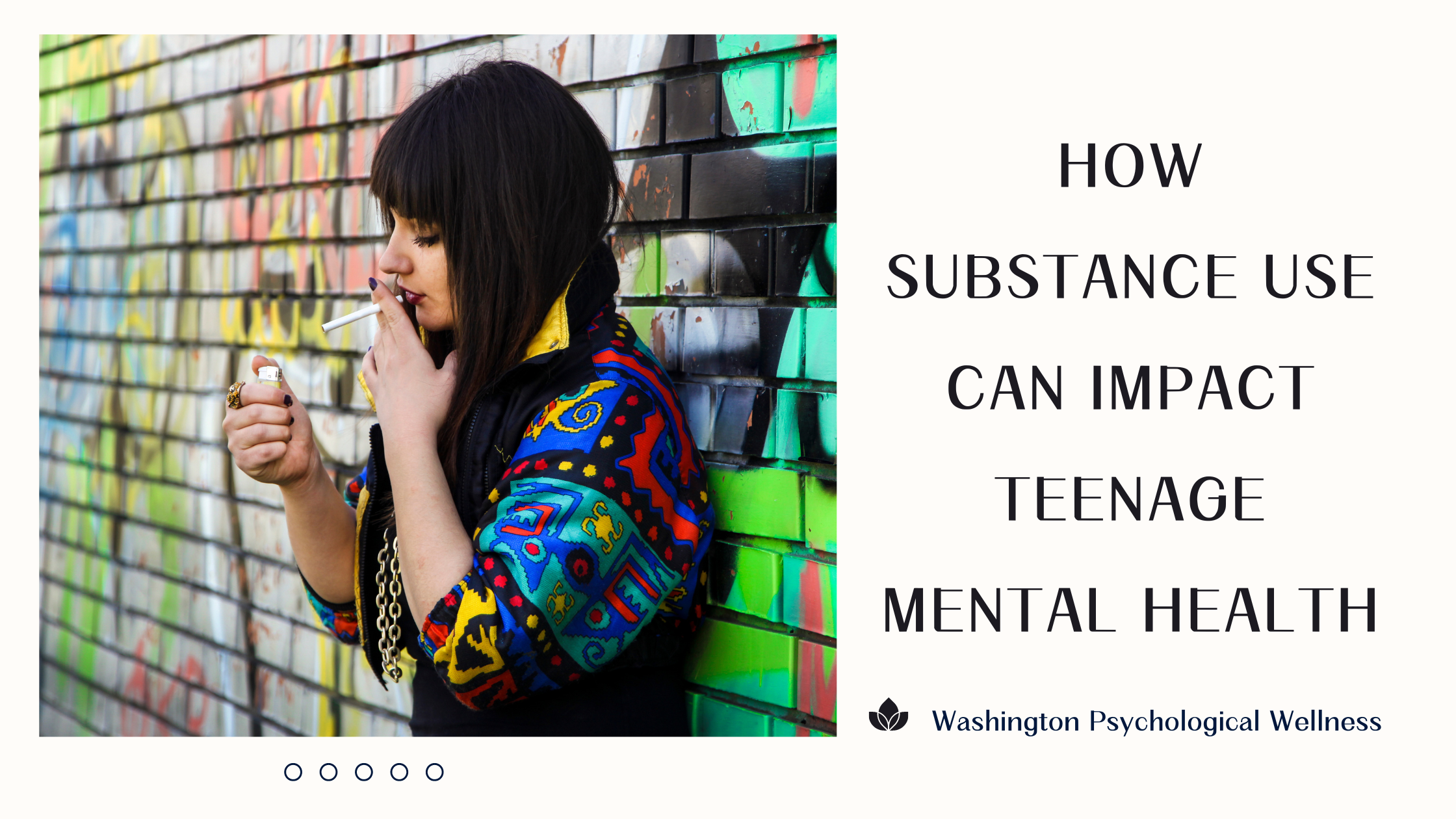
Navigating Teenage Mental Health: How Substance Use Can Leave a Lasting Impact
The teenage years are a whirlwind of growth and exploration, a phase filled with the promise of self-discovery and the excitement of new experiences. However, amidst the opportunities and challenges that adolescence presents, one issue looms significant and profoundly concerning: substance use among teenagers. In this blog, we will unveil the hidden truths about how substance use can silently infiltrate and affect the mental health of adolescents. Understanding this intricate connection will equip you with the knowledge to support and guide the young minds facing this struggle.
Teenage Substance Abuse Impact on Mental Health:
Elevated Risk of Mental Health Disorders:
Teenagers who engage in substance use are at an elevated risk of developing mental health disorders, such as anxiety, depression, and bipolar disorder. These conditions often become more prevalent in teenagers who use drugs or alcohol as a means of coping with life’s challenges. What may initially appear as a way to manage emotions can lead to a cycle of addiction and worsened mental health.
Cognitive Development Impairment:
Adolescence is a critical period for brain development, and substance abuse can interfere with this process. It can result in impaired cognitive function, memory deficits, and poor decision-making abilities. As academic performance suffers, it can increase stress and anxiety levels, further impacting their mental health.
Emotional Turmoil:
Substance use can exacerbate emotional instability in teenagers, resulting in mood swings, irritability, and aggressive behavior. These emotional disturbances not only strain relationships with family and peers but also intensify the sense of isolation and emotional distress.
Risky Behaviors:
Teenagers who abuse substances are more likely to engage in risky behaviors, such as reckless driving or engaging in unprotected sexual activities. These behaviors not only jeopardize their safety but also further compound their mental health issues.
Social Isolation:
Substance use often leads to social isolation as teens withdraw from their social circles. Loneliness and feelings of alienation can worsen existing mental health problems.
Signs That Your Teen Is Engaging in Substance Use:
It’s crucial for parents and caregivers to be vigilant about potential signs of substance use in teenagers. Some common signs to watch for include:
- Sudden Changes in Behavior: Look for abrupt shifts in your teen’s behavior, such as increased secrecy, mood swings, or a significant decline in academic performance.
- Physical Symptoms: Keep an eye out for physical signs like bloodshot eyes, unusual smells on their breath or clothing, changes in appetite, or unexplained weight loss.
- Social Isolation: If your teen starts distancing themselves from friends and family, it may be a sign of substance use or withdrawal from everyday activities.
- Decline in Personal Hygiene: Substance use can lead to personal hygiene and grooming neglect.
- Changes in Friendships: Notice if your teen begins associating with a new peer group or starts spending time with friends who exhibit risky behaviors.
- Missing Prescription Medications: Keep track of your prescription medications to ensure none are missing, which could indicate substance misuse.
- Paraphernalia: Discovering drug-related paraphernalia, such as pipes, pill bottles, or empty alcohol containers, may be a clear sign of substance use.
Resources to Assist Teens Facing Substance Abuse:
If you or a teenager you know is grappling with substance abuse issues, there are valuable resources available for support:
Washington Psychological Wellness:
At Washington Psychological Wellness, our team of experienced therapists assists teenagers in overcoming substance abuse. We offer confidential assessments, evidence-based therapies, and customized treatment plans to support recovery.
National Helplines:
You can contact national helplines like SAMHSA’s National Helpline at 1-800-662-HELP (1-800-662-4357). Trained professionals can provide confidential support and guidance, linking you with local resources tailored to your needs.
Local Support Groups:
Explore local support groups specifically designed for teenagers facing substance abuse challenges. These groups create a safe environment for sharing experiences, gaining insights, and fostering peer support.
School Counselors:
School counselors play a pivotal role in identifying and addressing substance abuse among students. They can provide guidance, make referrals, and assist in accessing appropriate programs.
Family Involvement:
Family therapy can be instrumental in the recovery process. Involving the family in treatment can enhance communication, address underlying issues, and provide a robust support system for the teen.
Understanding the profound impact of substance use on teenage mental health is crucial for timely intervention and support. If you notice any signs of substance use or mental health issues in your teenager, consider reaching out to Washington Psychological Wellness or other local resources. Recovery is possible, and seeking help is the first step toward a brighter, healthier future for teenagers facing substance abuse challenges.
